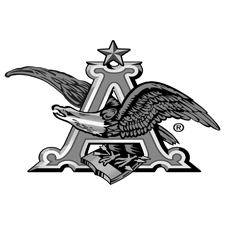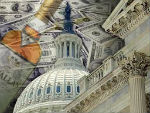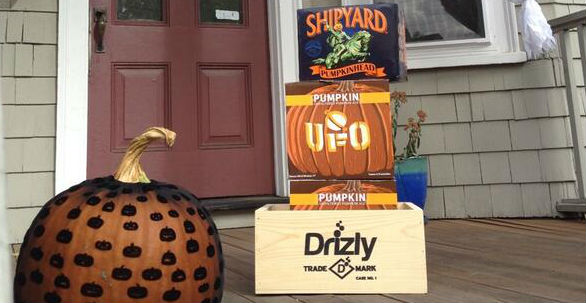In the Doghouse
Search
In the Doghouse
In the Doghouse: A-B InBev Awarded for Targeting LGBT Community
March 17, 2014
 |
Anheuser-Busch InBev's tactical marketing to the lesbian, gay, bisexual, and transgender (LGBT) community has really paid off. The National Gay and Lesbian Sports Hall of Fame just inducted A-B InBev for, among other things, ads from the 1990's featuring a gay couple holding hands. It seems the corporation's savvy targeting of gays and lesbians as a niche market paid off, even in the sports arena, with a round of free PR for the brand. The Hall of Fame also lauds the company's 2013 gay marriage PR stunt. Capitalizing on a community's fight for civil rights to peddle an alcoholic beverage that causes high rates of alcohol-related harm is about as cynical as it gets. If there were a "Cynical Marketing Ploy Hall of Fame," A-B InBev would get top billing.
The NGLSHF mission is to "recognize both individuals and organizations whose achievements and efforts have enhanced sports and athletics for the LGBT community." Just how has A-B InBev's use of LGBT community and its symbols to sell Bud Light also enhanced sports and athletics? As far as the evidence goes, alcohol consumption and resulting harm continues to be a major health concern for lesbian, gay, bisexual, and transgender people, especially LGBT and questioning youth. According to healthypeople.gov, LGBT populations have among the highest rates of alcohol, tobacco, and other drug use.
If A-B InBev really cared about the health and well-being of LGBT people, it would stop marketing practices that directly contribute to their community being harmed by alcohol. Instead, it's getting increased credibility and visibility in the LGBT world, free press hits in the sports world, and more PR in general. With the damage its products cause and the intent behind its demographic targeting, A-B InBev belongs in an LGBT Public Health Hall of Shame.
In the Doghouse: 'Tis the Season for Deregulation: 2014 Alcohol Legislative Snapshot
February 20, 2014
 |
| Big Alcohol spends millions each year on political contributions and lobbying to dismantle alcohol regulation. |
Each of these proposals dismantles effective, evidence-based policies to reduce alcohol-related harm: decreased access to alcohol; state control over wholesale, distribution, and/or retail sales; and increased prices through taxation. Who wouldn't want evidence-based alcohol policy? Who would influence legislators to support proposals that will contribute to alcohol-related harms?
Big Alcohol, that's who. Alcohol producers have an inefficiency problem, according to economists. Having exhausted corporate reach into production by buying one another out of market share, the easiest way producers can expand their ever-increasing profits is to make alcohol cheaper and more easily accessible. How can they do that? By controlling as much of the distribution and retail sales as possible. Big Alcohol fights tirelessly to chip away the 3-tier system that was designed to check its political power. Big Grocery, knowing that the cheaper the alcohol, the more customers in the stores, has joined the alcohol deregulation fray.
Big Alcohol and its industry trade groups exerts hefty influence on legislators, adept at flying under the public radar. Alcohol lobbyists haunt the halls of both Congress and state legislatures, spending big bucks on lobbying and political contributions. A quick look at its Congressional lobby spending in 2013 provides some telling examples:
The influence bought by these lobbying activities has effectively thwarted billions in potential government revenue in tax increases, undermined state trade regulations provided by the 21st Amendment, and dismantled laws intended to protect public health by limiting access and availability to alcohol. Big Alcohol's legislative battles are not only about privatizing state control; the constant chipping away at regulations endangers public health and safety as well.
In the Doghouse: Pernod Ricard Partners with Alcohol Delivery App
January 30, 2014
 |
Let's start with the intent of the venture capitalist investors, who had this to say about their recent $2.25 million cash infusion into the company: "We believe Drizly is poised to fundamentally change the behavior of 225 million Americans who can legally buy alcohol, as well as the three-tier system that services them.” This investor statement is prescient, alluding to the lines between retail service and producer within the three-tier regulatory system that could get blurry without much notice under this arrangement. Drizly has already cleverly circumvented the New York State Liquor Authority’s (NYSLA) regulatory system by getting NYSLA approval despite not having a retail liquor license because of the way it set up the service payment (technically the store processes the credit card, not Drizly). This isn't the first foray into alcohol delivery apps, but it's a troubling example of a special kind of deregulatory activity, without the bother of a legislative process, or public participation in the matter.
Another troubling aspect is the potential for Pernod's marketing deal with Drizly to slide into an influential, or even controlling, interest. How much has Pernod Ricard sunk into the deal with Drizly? So far, the details are under wraps. The press release vaguely describes a new association between the liquor giant and Drizly, centered around promotion, education and brand awareness. And who is in charge when a young, new startup welcomes Big Alcohol into its circle? The multibillion global alcohol conglomerate infusing the little startup with cash, or the startup?
That newly cemented relationship with Big Alcohol makes it hard to believe the app's press release statements about only focusing its online promotion and actual sales on adults who are 21 and older. In a recent study, 45% of home deliveries to underage youth were successful, many to those with fake IDs. Drizly scrambles to reassure that their delivery method is “responsible,” but, industry calling itself "responsible" is a tired marketing spin with the ironic intent of absolving the industry of any actual accountability. And despite Drizly's repeated assurances that its ID scanning technology will prevent sales to underage customers, the app can be downloaded by any 17-year-old.
It's a slippery slope from a couple of college guys who seal a marketing deal for their wannabe Amazon alcohol app, to that app (and its owners) being influenced, controlled, or even owned by Big Alcohol.
More Articles ...
Help us hold Big Alcohol accountable for the harm its products cause.
| GET ACTION ALERTS AND eNEWS |
STAY CONNECTED    |
CONTACT US 24 Belvedere St. San Rafael, CA 94901 415-456-5692 |
SUPPORT US Terms of Service & Privacy Policy |
Copyright © 2024 Alcohol Justice. All Rights Reserved.
Joomla! is Free Software released under the GNU General Public License.


